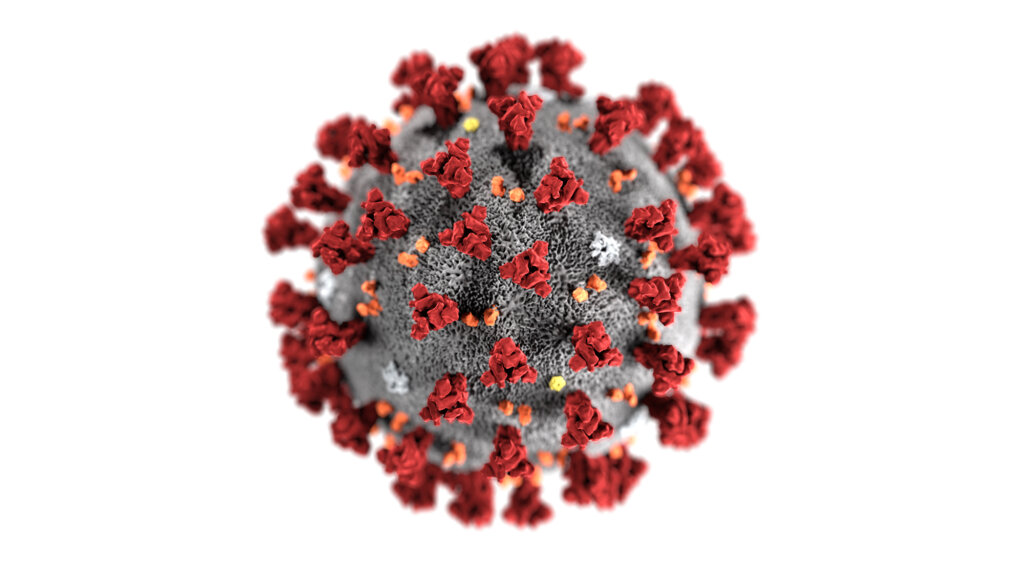
For Outstation Students, we are having online Final Year covid 19 projects classes both technical and coding using net-meeting software
For details, Call: 9886692401/9845166723
DHS Informatics providing IEEE covid 19 projects bangalore for the final year engineering students. DHS Informatics trains all students to develop their project with good idea what they need to submit in college to get good marks. DHS Informatics offers placement training in Bangalore and the program name is OJT – On Job Training, job seekers as well as final year college students can join in this placement training program and job opportunities in their dream IT companies. We are providing IEEE projects for B.E / B.TECH, M.TECH, MCA, BCA, DIPLOMA students from more than two decades.
DHS Informatics believes in students’ satisfaction, we first brief the students about the technologies and type of best IEEE covid 19 projects and other domain projects. After complete concept explanation of the best IEEE covid 19 projects, students are allowed to choose more than one IEEE covid 19 projects for functionality details.
We are the pioneer institute in Bangalore / Bengaluru; we are supporting project works for other institute all over India. We are the leading final year project centre in Bangalore / Bengaluru and having office in five different main locations Jayanagar, Yelahanka, Vijayanagar, RT Nagar & Indiranagar.
We allow the ECE, CSE, ISE, EEE, Mechanical final year students to use the lab and assist them in project development work; even we encourage students to get their own idea to develop their final year projects for their college submission.
In our process, we first train students on project related topics then students are entering into practical sessions. We have well equipped lab set-up, experienced faculties those who are working in our client projects and friendly student coordinator to assist the students in their college project works.
IEEE corana covid 19 projects bangalore | Final Year covid 19 projects | corana covid 19 projects bangalore | Students corana covid 19 projects bangalore
Abstract
Machine learning (ML) based forecasting mechanisms have proved their significance toanticipate in perioperative outcomes to improve the decision making on the future course of actions. The MLmodels have long been used in many application domains which needed the identification and prioritizationof adverse factors for a threat. Several prediction methods are being popularly used to handle forecastingproblems. This study demonstrates the capability of ML models to forecast the number of upcomingpatients affected by COVID-19 which is presently considered as a potential threat to mankind. In particular,two standard forecasting models, such as linear regression (LR), support vector machine (SVM) have been used in this study to forecast the threatening factors of COVID-19.
For More Details click video icon:
Contact:
![]() +91-98451 66723
+91-98451 66723
![]() +91-98866 92401
+91-98866 92401
Abstract
Contact tracing is an essential tool for public health officials and local communities to fight the spread of novel diseases, such as for the COVID-19 pandemic. The Singaporean government just released a mobile phone app, TraceTogether, that is designed to assist health officials in tracking down exposures after an infected individual is identified. However, there are important privacy implications of the existence of such tracking apps. Here, we analyze some of those implications and discuss ways of ameliorating the privacy concerns without decreasing usefulness to public health. We hope in writing this document to ensure that privacy is a central feature of conversations surrounding mobile contact tracing apps and to encourage community efforts to develop alternative effective solutions with stronger privacy protection for the users. Importantly, though we discuss potential modifications, this document is not meant as a formal research paper, but instead is a response to some of the privacy characteristics of direct contact tracing apps like TraceTogether and an early-stage Request for Comments to the community.
For More Details click video icon:
Contact:
![]() +91-98451 66723
+91-98451 66723
![]() +91-98866 92401
+91-98866 92401
Abstract
Online social networks (ONSs) such as Twitter have grown to be very useful tools for the dissemination of information. However, they have also become a fertile ground for the spread of false information, particularly regarding the ongoing coronavirus disease 2019 (COVID-19) pandemic. Best described as an infodemic, there is a great need, now more than ever, for scientific fact-checking and misinformation detection regarding the dangers posed by these tools with regards to COVID-19. In this paper, we analyze the credibility of information shared on Twitter pertaining the COVID-19 pandemic. For our analysis, we propose an ensemble-learning-based framework for verifying the credibility of a vast number of tweets. In particular, we carry out analyses of a large dataset of tweets conveying information regarding COVID-19. In our approach, we classify the information into two categories: credible or non-credible. Our classifications of tweet credibility are based on various features, including tweet- and user-level features. We conduct multiple experiments on the collected and labeled dataset. The results obtained with the proposed framework reveal high accuracy in detecting credible and non-credible tweets containing COVID-19 information.
For More Details click video icon:
Contact:
![]() +91-98451 66723
+91-98451 66723
![]() +91-98866 92401
+91-98866 92401
Abstract
The very first infected novel coronavirus case (COVID-19) was found in Hubei, China in Dec. 2019. The COVID-19 pandemic has spread over 214 countries and areas in the world, and has significantly affected every aspect of our daily lives. At the time of writing this article, the numbers of infected cases and deaths still increase significantly and have no sign of a well-controlled situation, e.g., as of 13 July 2020, from a total number of around 13.1 million positive cases, 571; 527 deaths were reported in the world. Motivated by recent advances and applications of artificial intelligence (AI) and big data in various areas, this paper aims at emphasizing their importance in responding to the COVID-19 outbreak and preventing the severe effects of the COVID-19 pandemic. We firstly present an overview of AI and big data, then identify the applications aimed at fighting against COVID-19, next highlight challenges and issues associated with state-of-the-art solutions, and finally come up with recommendations for the communications to effectively control the COVID-19 situation. It is expected that this paper provides researchers and communities with new insights into the ways AI and big data improve the COVID-19 situation, and drives further studies in stopping the COVID-19 outbreak.
For More Details click video icon:
Contact:
![]() +91-98451 66723
+91-98451 66723
![]() +91-98866 92401
+91-98866 92401
Abstract
COVID-19 outbreak has put the whole world in an unprecedented dif cult situation bringing life around the world to a frightening halt and claiming thousands of lives. Due to COVID-19’s spread in 212 countries and territories and increasing numbers of infected cases and death tolls mounting to 5,212,172 and 334,915 (as of May 22 2020), it remains a real threat to the public health system. This paper renders a response to combat the virus through Arti cial Intelligence (AI). Some Deep Learning (DL) methods have been illustrated to reach this goal, including Generative Adversarial Networks (GANs), Extreme Learning Machine (ELM), and Long /Short Term Memory (LSTM). It delineates an integrated bioinformatics approach in which different aspects of information from a continuum of structured and unstructured data sources are put together to form the user-friendly platforms for physicians and researchers. The main advantage of these AI-based platforms is to accelerate the process of diagnosis and treatment of the COVID-19 disease. The most recent related publications and medical reports were investigated with the purpose of choosing inputs and targets of the network that could facilitate reaching a reliable Arti cial Neural Network-based tool for challenges associated with COVID-19. Furthermore, there are some speci c inputs for each platform, including various forms of the data, such as clinical data and medical imaging which can improve the performance of the introduced approaches toward the best responses in practical applications.
For More Details click video icon:
Contact:
![]() +91-98451 66723
+91-98451 66723
![]() +91-98866 92401
+91-98866 92401
Abstract
In 2020, our world has been hit by a global pandemic of COVID-19, belonging to the family of Coronavirus. Due to the rapid increase in the infection and the death rate, people have started to develop mixed feelings regarding this situation. Therefore, in this study, our sole focus is to analyze the emotions expressed by people using social media such as Twitter etc. Accumulating and studying the concerning tweets will provide aid to elicitate the real emotions during this hard time. The goal of this study is to present a domain-specific approach to understand sentiments manifested within people around the globe regarding this situation. In order to attain this, coronaspecific tweets are acquired from twitter platform. After gathering the tweets, they are labelled and a model is developed which is effective for detecting the actual sentiment behind a tweet related to COVID-19. The substantial assessments are performed in bi-class and multi-class setting over n-gram feature set along with cross-dataset evaluation of different machine learning techniques in order to develop the model. Our experiments reveal that the proposed model performs well in perceiving the perception of people about COVID-19 with a maximum accuracy of about 93%.
For More Details click video icon:
Contact:
![]() +91-98451 66723
+91-98451 66723
![]() +91-98866 92401
+91-98866 92401
Abstract
We researched the diagnostic capabilities of deep learning on chest radiographs and an image classifier based on the COVID-Net was presented to classify chest X-Ray images. In the case of a small amount of COVID-19 data, data enhancement was proposed to expanded COVID-19 data 17 times. Our model aims at transfer learning, model integration and classify chest XRay images according to three labels: normal, COVID-19 and viral pneumonia. According to the accuracy and loss value, choose the models ResNet-101 and ResNet-152 with good effect for fusion, and dynamically improve their weight ratio during the training process. After training, the model can achieve 96.1% of the types of chest X-Ray images accuracy on the test set. This technology has higher sensitivity than radiologists in the screening and diagnosis of lung nodules. As an auxiliary diagnostic technology, it can help radiologists improve work efficiency and diagnostic accuracy.
For More Details click video icon:
Contact:
![]() +91-98451 66723
+91-98451 66723
![]() +91-98866 92401
+91-98866 92401
IEEE corana covid 19 projects bangalore | Final Year covid 19 projects | corana covid 19 projects bangalore | Students corana covid 19 projects bangalore | Final Year covid projects



